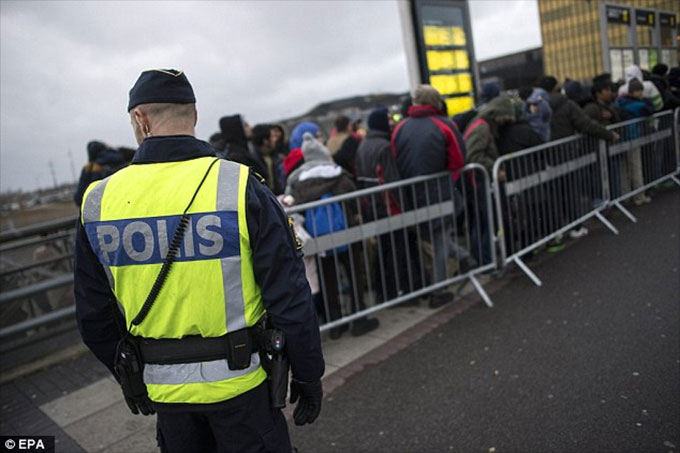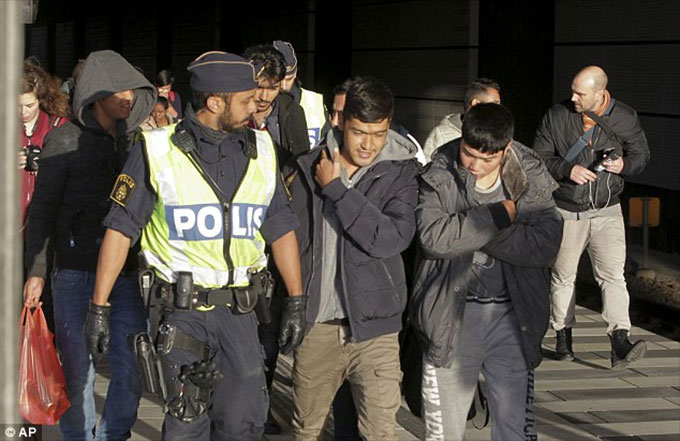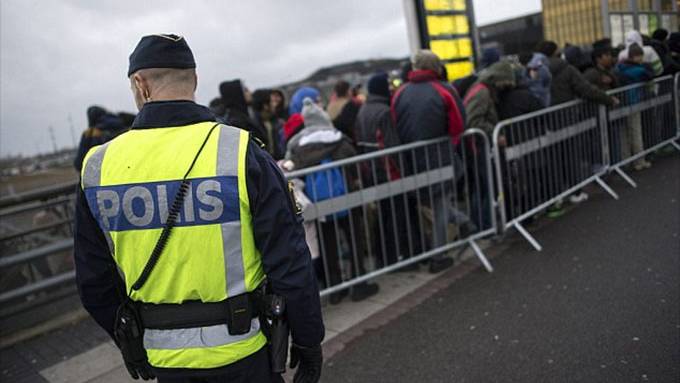Number of Iraqi migrants applying to return home from Sweden DOUBLES as more and more decide they cannot face life in Europe
Source: dailymail.co.uk

Returning: The number of withdrawn asylum applications in Sweden increased by 97 per cent from October to January this year
The number of migrants and refugees withdrawing their asylum applications and leaving Sweden has nearly doubled in recent months.
Requests to withdraw asylum applications increased by 97 per cent from October to January this year, Swedish migration statistics show.
Nearly half of migrants opting to return home are from Iraq, which corresponds with similar reports in other EU countries, including Germany and Finland, this year.
Statistics on withdrawn asylum applications from the Swedish Migration Authority obtained by MailOnline, show a steep increase in the past four months.
Up until October 2015, the number of withdrawn asylum applications averaged around 300 per month.

Giving up: Nearly half of the requests to withdraw application for asylum in Sweden were made by migrants from Iraq (pictured are police checking ID's of migrants in Stockholm)
However, in November last year, the number shot up to 629, increasing to 668 in December, peaking at 779 in January.
Last month, a total of 684 applications for asylum in Sweden were withdrawn, statistics show.
Out of the more than 2,150 requests to withdrawn applications, more than 1,020 had been made by Iraqi asylum seekers.

Refugees and migrants attend a Swedish language class at the temporary house for asylum seekers in Kladesholmen, near Gothenburg, western Sweden
The second largest group were Iranians, with 245 withdrawn applications, followed by Afghans with 224.
In addition, the Swedish Migration Authority reported writing off a growing number of asylum cases, where the applicant has disappeared and is presumed having left.
Sweden welcomed more than 163,000 migrants and refugees in 2015, more than any other European nation per capita.
The Scandinavian country, which has a population of nearly 10 million, imposed compulsory border-control ID checks in January to try to curb the influx.
Increasing numbers of Iraqi migrants returning to their home countries after becoming disillusioned with their new lives Europe has been seen in both in Germany and elsewhere in Scandinavia.
In Germany, more and more Iraqis book one-way flights back after finding that the promises made by human smugglers in their home countries were not fulfilled.
Having been sold the idea of a flourishing jobs-market, good housing and an opportunity to have their families join them, they are finding the reality of life in Germany disappointing.
In 2015, Germany took in more than 1.1million refugees and migrants, and as a result, the asylum application process has become increasingly ardous.

Sweden, which has a population of nearly 10 million, welcomed more than 163,000 migrants and refugees in 2015, more than any other European nation per capita
Struggling volunteers buckle under the pressure of the sheer numbers, refugee centres have become overcrowded and integration into German society is taking longer.
A tightening of rules last autumn also made it more difficult to send for family members after being given asylum, something which many had counted on when making the journey across the Mediterranean.
In addition, there has been growing anti-immigrant sentiments in Germany and across Europe, with Muslims the main targets of far-right hatred.
Last month, thousands of Iraqi migrants who had fled to Finland, were pictured kissing the ground as they returned to their home country.
Almost two thirds of these were young Iraqi men, but some changed their mind and returned after the Finnish government offered chartered flights to Baghdad.
Europe is facing it's biggest wave of immigration since the Second World War, with millions risking their lives to leave war and terror behind, or simply to seek a better life on another continent.
The latest UN report shows that in the first two months of 2016, more than 130,000 refugees and migrants crossed the Mediterranean Sea - more than the total number for the first half of 2015.
These statistics do not take into account the thousands or men, women and children who have died while attempting to make the crossing.
Source: dailymail.co.uk






















